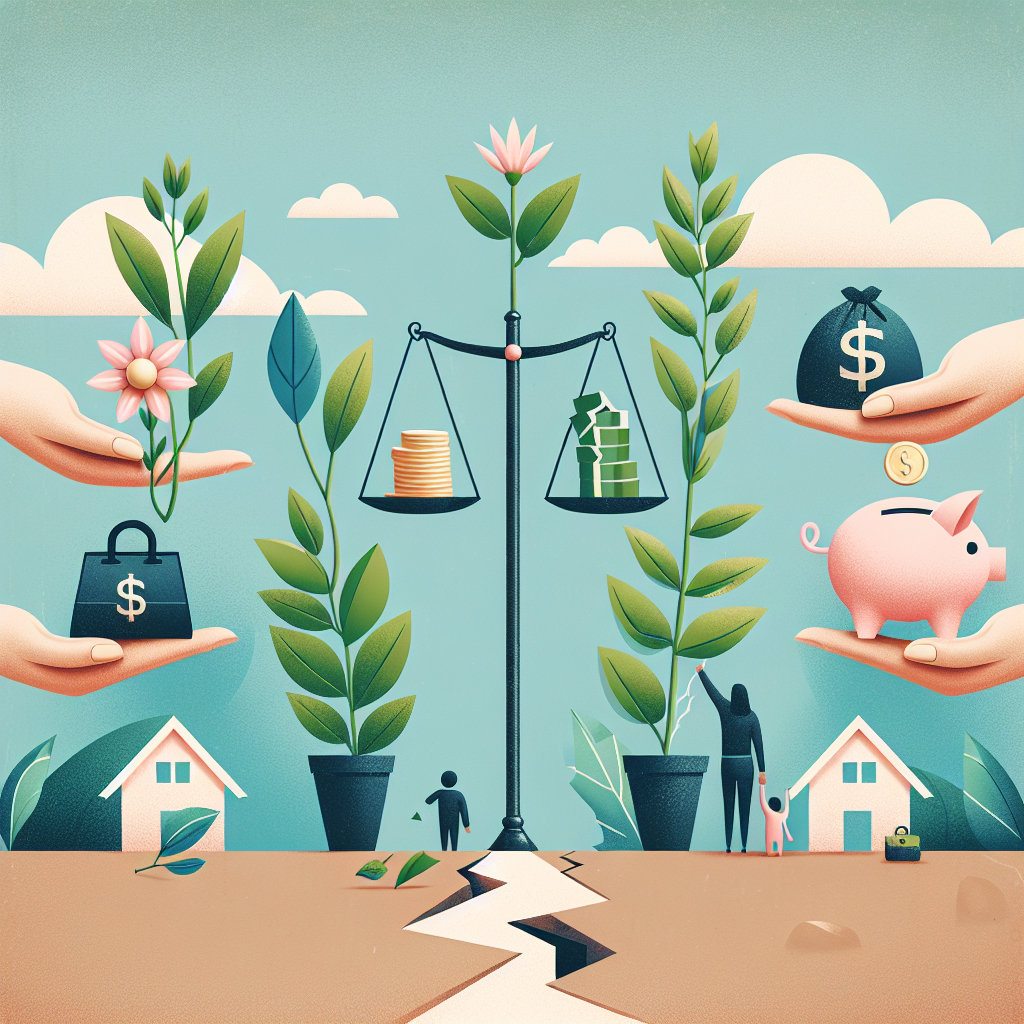Adjusting to Lifestyle Changes Post-Divorce

Reviving Happiness: Life After Divorce
Understanding the Stages of Divorce Recovery
Divorce can be a difficult and emotional experience for anyone, and the aftermath can bring about a range of complex challenges and changes. Adjusting to a new lifestyle after divorce can be a daunting task, but it’s important to remember that it is possible to move forward and thrive. The key to making a successful transition is understanding the stages of divorce recovery and finding ways to cope with each stage.
Navigating the Emotional Rollercoaster of Divorce
One of the most challenging aspects of adjusting to life after divorce is managing the intense emotions that come with it. It’s normal to feel a wide range of emotions, from anger and sadness to relief and even guilt. It’s important to allow yourself to feel these emotions and give yourself time and space to process them. Seeking therapy or support groups can also be beneficial in helping you navigate the emotional rollercoaster of divorce. Remember to be patient with yourself and practice self-care during this difficult time.
Finding Support and Rebuilding Your Social Circle
Divorce can also bring about significant changes in your social circle. You may have lost friends or acquaintances who were primarily connected to your ex-spouse, or you may feel isolated and alone during this transition. It’s important to reach out to friends and family for support and to rebuild your social circle. You can also consider joining support groups or attending events and activities that align with your interests to meet new people and create new connections.
Managing Finances and Reestablishing Financial Stability
Divorce also brings financial changes that can be overwhelming and stressful. It’s important to take a close look at your post-divorce finances and make a plan to manage them effectively. This may involve creating a new budget, downsizing to a more affordable living situation, or seeking additional sources of income. Reaching out to a financial planner can also be helpful in creating a plan to reestablish financial stability.
Taking Care of Your Physical and Mental Health
During times of high stress and change, it’s important to prioritize your physical and mental health. This can involve finding ways to manage stress, such as exercise, meditation, or therapy. It’s also important to maintain a healthy diet, get enough sleep, and engage in activities that bring you joy and relaxation. Remember to listen to your body and give yourself time to rest and recharge when needed.
Co-Parenting and Creating a Healthy Environment for Children
If you have children, adjusting to life after divorce also means navigating co-parenting with your ex-spouse. It’s important to prioritize your children’s well-being and create a healthy co-parenting relationship. This may involve setting clear boundaries, communicating effectively, and focusing on the needs of your children rather than the past issues between you and your ex-spouse. Seeking the help of a therapist or mediator can also be beneficial in creating a positive co-parenting dynamic.
Reentering the Dating Scene and Finding Love Again
For some individuals, adjusting to a new lifestyle after divorce may involve reentering the dating scene and potentially finding love again. It’s important to take time to heal and focus on yourself before diving into a new relationship. When you do feel ready, be open and honest about your past experiences and what you are looking for in a partner. Remember to take things slow and prioritize your own emotional well-being before committing to a new relationship.
Redefining Your Identity and Moving Forward with Confidence
Divorce can also bring about a sense of loss and uncertainty about one’s identity. It’s important to take time to reflect on who you are as an individual and what you want for your future. This may involve trying new things, rediscovering old hobbies, or setting new goals. It’s important to move forward with confidence and a sense of self-worth, knowing that your identity is not defined by your marital status.
Coping with Loneliness and Isolation After Divorce
Feeling lonely and isolated after a divorce is a common experience. It’s important to acknowledge and validate these feelings, but also take steps to cope with them. This may involve reaching out to friends and family, joining support groups, or engaging in activities that bring you joy and fulfillment. Remember that it’s okay to be alone and to take time for yourself, but also make an effort to stay connected with others.
Embracing Your New Life After Divorce and Looking Towards the Future
Adjusting to a new lifestyle after divorce is a process that takes time and patience. It’s important to focus on the present and try not to dwell on the past. Embrace the changes and opportunities that come with this new chapter in your life. Set goals for the future and work towards creating a fulfilling and happy life for yourself. Remember that you have the strength and resilience to overcome any challenges that come your way.



